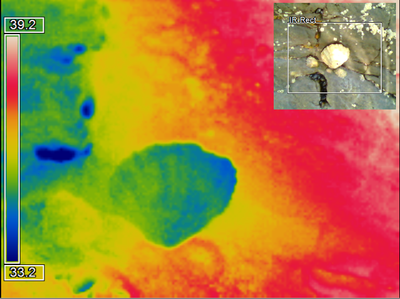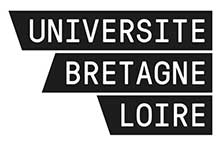Coraline Chapperon
PostDoctoral Fellow:Dr Coraline Chapperon
Scientific Sponsors:Jacques Clavier
LabexMER Research Axis 6
I use aquatic habitats (intertidal areas) as test bed systems and gastropod mollusks as bellwethers of the consequences of the warming climate. Aquatic ectotherms such as gastropod species play key roles in establishing distribution and dispersion patterns of others organisms. They also actively participate in the matter and energy fluxes from the primary producers to higher groups of consumers in trophic webs. They are however particularly at risk in the global warming context and changes in their distribution and abundance can impact the structure and functioning of the whole ecosystem. I have focused upon intertidal gastropods which inhabit one of the most stressful and fluctuating ecosystem in the world and thus already live at or near to the upper limit of their tolerance window. Their responses and abilities to acclimatize and adapt to environmental changes related to climate change can thus provide insightful information about the capacity of others ectotherms to persist in an era of changes.
In this context, my research has mostly been guided by the following fundamental question: Can physiological and behavioural responses of mollusks compensate the changing climate? My work focuses upon the biology and ecology of invertebrates especially gastropod species with a particular interest upon the processes occurring at a scale relevant to organisms. I am interested in the ability of gastropods to respond, acclimatize, adapt and evolve to changing environmental conditions like temperature and oxygen level. My work has implications in invertebrate ecology, behavioural ecology, ecophysiology, thermal ecology and climate change adaptations and results can impact the field of conservation management of aquatic ectotherms.
Figure 1 : Thermal and digital images of Patella vulgata highlighting the thermoregulatory effect of shell raising behaviour.
Actions sur le document












